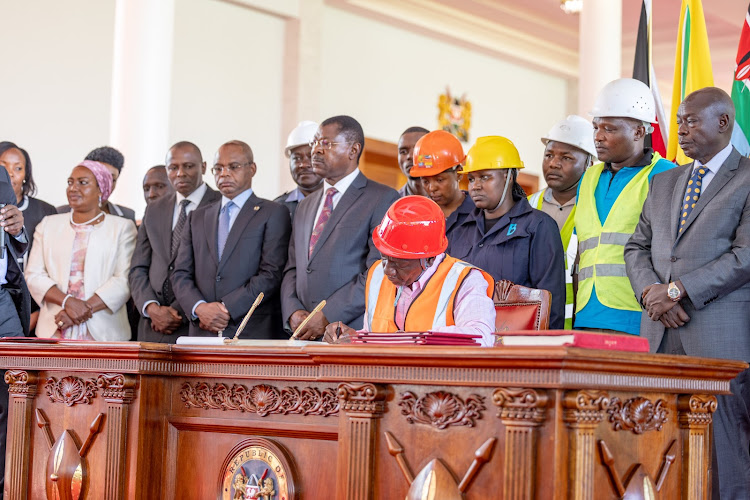Kenya’s President, William Ruto, has endorsed a contentious bill facilitating the government’s collection of a housing levy equivalent to 1.5% of an employee’s monthly salary.
The levy aims to finance the construction of affordable housing for low-income Kenyans. However, it has faced opposition from various quarters, including the political opposition and a significant portion of the populace, who perceive it as an additional tax burden.
The legislation encountered legal hurdles, with a judge previously halting deductions due to the absence of a legal framework. Despite objections from opposition lawmakers, the bill was recently amended and ratified by Members of Parliament.

Included in President Ruto’s 2022 election manifesto, the housing levy formed part of a broader finance law passed last June, which also saw a doubling of the sales tax on fuel and impending implementation of a higher health insurance levy.
The government argues that increasing revenue through taxation is vital for deficit reduction and financing public services.
Initially implemented in July, the 1.5% housing levy faced public backlash, prompting legal challenges. The new law extends the levy to workers beyond the formal sector, now encompassing non-salaried individuals in the informal sector. However, the method of collecting funds from informal workers remains uncertain.
Furthermore, the law establishes the Affordable Housing Fund to manage the collected levy, with assurances from authorities that the deduction will not be retroactive.
President Ruto’s housing initiative targets the construction of 200,000 affordable housing units annually, with the aim of generating over 600,000 jobs.
Despite government assurances, the opposition has threatened legal action, alleging disregard for public concerns regarding escalating tax burdens.


